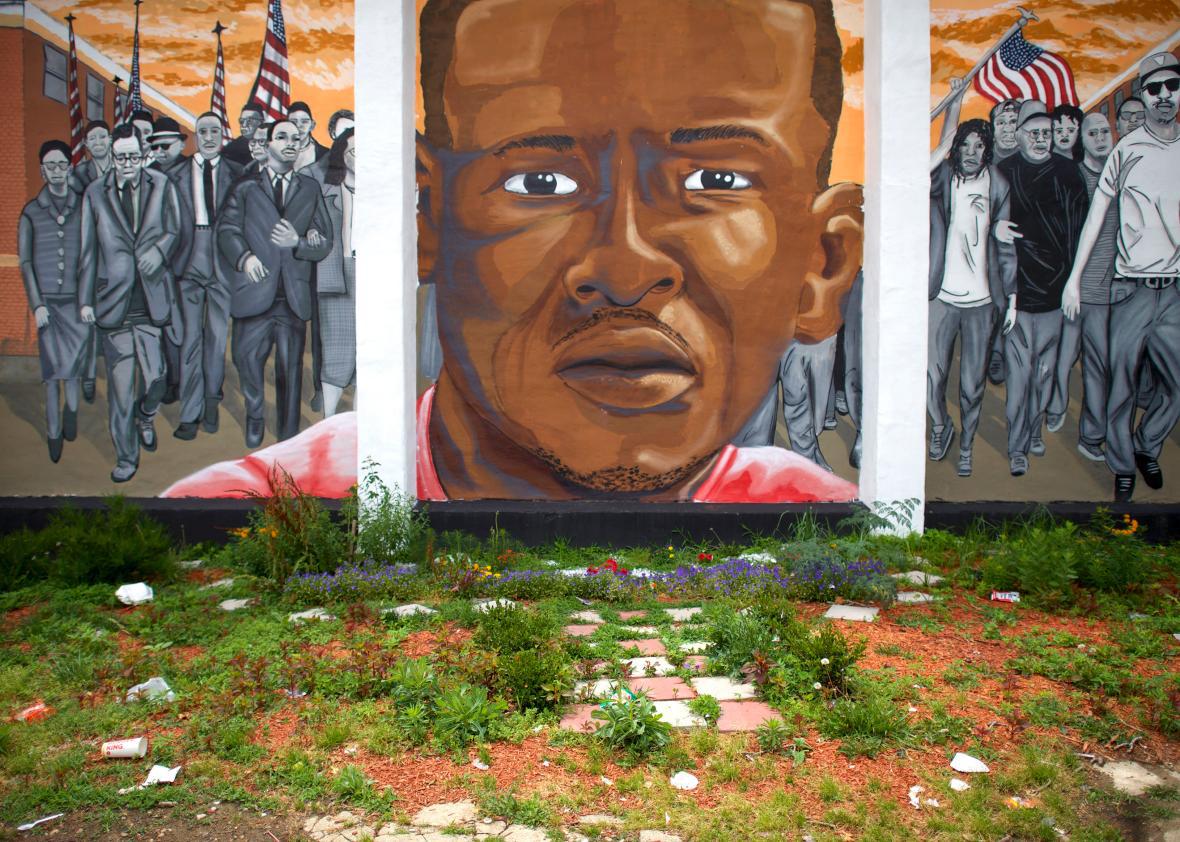The highest ranking police officer charged in connection with the death of 25-year-old Freddie Gray was acquitted of all charges on Monday, the fourth time that a trial for a Baltimore officer involved in the case ended without a conviction.
Opting for a bench trial instead of a jury trial, Lt. Brian Rice was cleared by Circuit Judge Barry Williams of involuntary manslaughter, reckless endangerment, and misconduct in relation to Gray’s death following an ill-fated van ride that prosecutors had alleged was an intentional “rough ride” meant to punish Gray.
Prosecutors in this latest trial argued that, as the ranking officer, Rice had a duty to make sure that Gray was buckled during the ride and did not—instead he was shackled, handcuffed, placed in the backseat without a seatbelt, and driven around the city before being discovered at a police station unresponsive and not breathing, eventually dying a week later of a spinal injury.
Charges against Rice of second-degree assault and misconduct had been either previously dismissed by the judge or put aside by prosecutors.
Gray’s death shook the city of Baltimore with mass demonstrations at a time when the deaths of unarmed black men and women during police encounters across the country and the black lives matter protest movement had sparked outrage, but few prosecutions.
Gray’s case was one of the rare instances where prosecutors chose to go forward with charges against police. There are three more trials scheduled—including a retrial of an officer whose first trial ended in a hung jury—but the latest acquittal will renew calls for those charges to be dropped by Baltimore State’s Attorney Marilyn J. Mosby, the Baltimore Sun noted.
As the New Yorker’s Benjamin Wallace-Wells observed last week, these trials have demonstrated that the justice system may be poorly equipped to address the general culture of police harassment, especially in cases where multiple officers are involved and it’s difficult to pinpoint a single responsible actor. As Wallace-Wells wrote, “the case mostly represents the ways in which everyday police neglect can elude criminal justice.”
In the trial of Caesar Goodson Jr., who faced the harshest charges, including second-degree depraved-heart murder, prosecutors were unable to prove that Goodson had intentionally given Gray a “rough ride,” with multiple prosecution witnesses saying they could not definitively state that one had occurred based on the available evidence.
Baltimore lawyer A. Dwight Pettit, who works on police brutality cases, defined “rough ride” to the New York Times as follows: “A rough ride is basically the police driving in such a manner to inflict injury or pain on the person being transported because they have knowledge that the person is not secure in the vehicle and is usually handcuffed or possibly leg chained and therefore has no way to protect themselves.”
The judge in this latest case and the one in which Goodson was acquitted, Williams, is black and worked in Bill Clinton’s Justice Department in the Civil Rights Division of the Department of Justice prosecuting cases of police misconduct.
